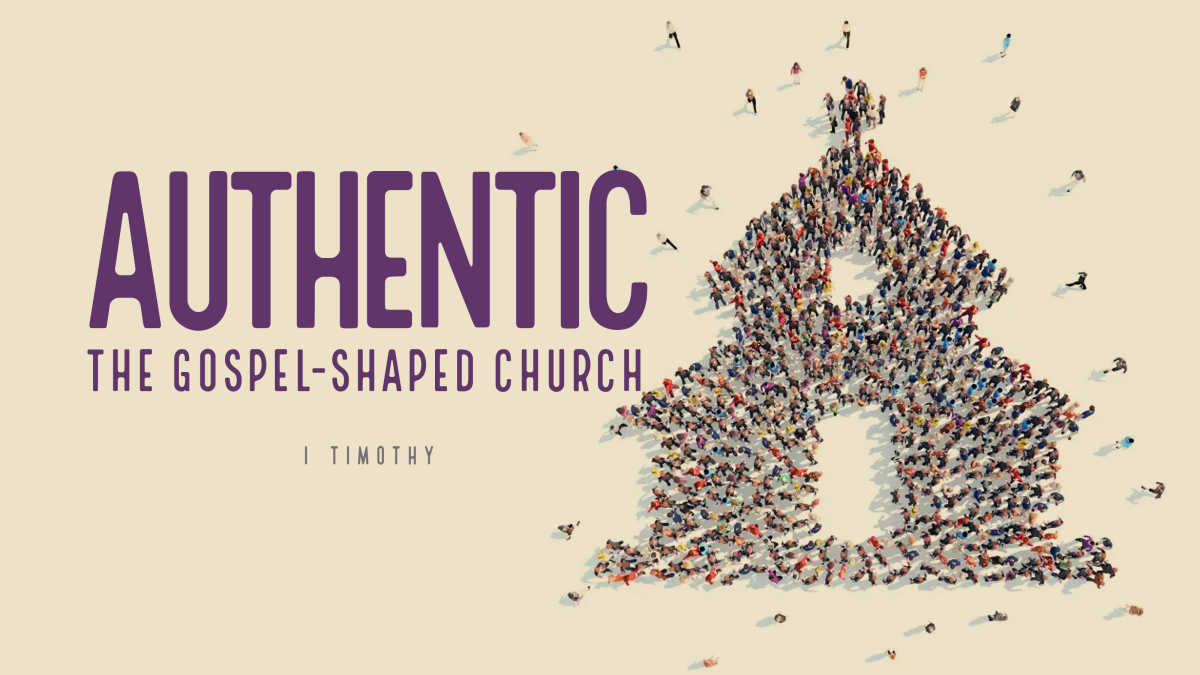Doing Your To-do with Jesus
Josh Bond, Pastoral Resident at Church on Mill, discusses here near- and farsightedness inherent in our processing of our daily to-do lists. How are we to live everyday for eternity?
“The sun rises, and the sun goes down / and returns panting to the place where it rises,” (Ecc 1:5) everyday—and think of all you need to get done before it sets again!
The paces of our lives vary depending on our individual circumstances. Working parents might live fast-paced, often hectic lives; retirees probably proceed at a slower, steadier pace. Regardless of our season in life, the sun rises and sets on us all. We each receive a handful of hours every day and need to decide what to do with them. We all have to make a to-do list and carry it out.
A Tale of To-Dos: The Near- and Farsighted
We have to steer between opposite pitfalls when it comes to thinking about our to-dos: nearsightedness and farsightedness.
Nearsightedness idolizes the to-do list. It happens when the routine tasks of life—whether at home, work, or even church—become ends in themselves. It happens when we start to identify with or seek value from our work. The 1989 movie Dead Poets Society responds to nearsightedness. In it, Robin Williams plays a teacher striving to steer a class of college prep students away from a life of ladder climbing and workaholism, saying “…medicine, law, business, engineering, these are noble pursuits and necessary to sustain life. But poetry, beauty, romance, love, these are what we stay alive for.”
In other words, if we become obsessed with our to-dos, we risk losing sight of the ends they were supposed to work towards in the first place! If we find all of our identity and value in completing all of our to-dos, we might’ve lost sight of why we were doing them at all. Nearsightedness can happen even with good things. I might structure my whole life around building up the church or taking care of my family—those are good things, but to what end? Can they encapsulate everything that I’m called to be?
Instead of the items on our to-do list, Dead Poets Society suggested we should live for “beauty, romance, and love.” Is that a satisfactory solution? That leads into the second pitfall.
Farsightedness despises the to-do list. Farsightedness happens when we yearn so much for the ‘good things’ in life—beauty, romance, love, etc.—that we begin resenting all the menial things that get in the way. We all want to live a full, meaningful life—but how can we when we have to spend all morning running errands and all evening washing dishes? Don’t the mundane to-dos swallow up all the beauty in life?
Personally, I tend to waffle between nearsightedness and farsightedness. Sometimes, I go through manic swings of knocking out task after task, feeling exhilarated by my own productivity. Inevitably though, the momentum dies, and I move on to feeling like all my duties, responsibilities, and chores in life are meaningless, a burden sucking the joy out of life. Maybe you can relate.
As we turn to Scripture in search of God’s truth, we find that neither near- or farsighted perspectives on our to-do lists are right. So, how do we strike a healthy balance? How can we see our to-do lists rightly? Let’s begin by reevaluating what truly makes life worth living.
Eternal Life: What (or, Who) We Stay Alive For
Think of the last movie you saw and ask yourself what it portrayed as making life meaningful. Chances are, it commended either something directly or abstractly farsighted. Or else, think of the countless Instagram posts that recommend “10 daily steps” to follow to ease stress, save money, eat healthier or otherwise be a better person: they’re concrete and maybe helpful, but they make promises to solve life’s ultimate problems that they can’t fulfill. Neither abstract ideals (farsighted) nor the things we do (nearsighted) can comprehend and fulfill all that we’re called to be in life.
In the Bible, Christians are promised access to eternal life, life that is fulfilling, beautiful, and meaningful. Isn’t that what we’re all after? Life that transcends our limits, life that makes everything worth it? What’s the key to this eternal life?
John’s Gospel richly develops Jesus’s teaching on eternal life (see Jn 3:16, 4:14, 5:24, 6:40, 6:68, 10:28, 11:25, 12:25). Jesus ultimately unveils eternal life as he prays to the Father for his followers: “Father, the hour has come; glorify your Son that the Son may glorify you, since you have given him authority over all flesh, to give eternal life to all whom you have given him. And this is eternal life, that they know you, the only true God, and Jesus Christ whom you have sent,” (John 17:1–3).
What is the source of eternal life? What makes life worth living? What comprehends all that we’re supposed to be and gives it meaning? Simply this: knowing God the Father and Jesus whom he has sent.
But how does knowing God help us think better about our daily lives? What keeps eternal life from being another farsighted answer to life’s problems? We might say, “I know I’ll live forever with Jesus when I die—but doesn’t that make today even more mundane and meaningless?”
But that’s not how the New Testament portrays the daily lives of Christians! Rather than rendering our daily lives meaningless, eternal life from Jesus elevates our everyday tasks into the scope of eternity. Hence, we can delight in our to-dos by seeing them in light of eternity.
Let’s look at how this plays out in the Bible.
Vision Check: Biblical Bifocals
The Bible portrays our everyday to-dos as meaningful, but not ultimate.
“Meaningful” means that our to-do lists are not drudgeries or distractions from the “really important” things of life. Instead, our to-dos are things that God has providentially assigned us to do—and promised to bless! That’s why Paul can tell Christians that their labor is “never in vain” (1 Cor 15:58). In the New Testament, that “labor” includes providing for our families (1 Tim 5:8), caring for the practical needs of fellow believers (e.g., 1 Cor 16:1, Jas 2, 3 Jn 5), earning a living (Eph 4:28), and parenting (Eph 6:1–4).
Those sound like the sort of things that end up on our to-do lists! And yet, the Bible insists that these are wrapped up in living according to our calling as children of God living eternally in Christ (Eph 4:1). Inasmuch as Jesus is our source of eternal life, fulfilling that eternal life looks like faithfully fulfilling all the tasks and responsibilities that God has given us to steward—whether that’s family, work, chores, parenting, etc. Since our to-do lists are meaningful in this way, we can’t give in to a farsighted despair that resents all the menial tasks of life. The menial tasks contribute to the eternal!
At the same time, our to-do lists are “not ultimate.” John says the present life is “passing away” (1 Jn 2:17). The things we do here build us up as we grow into our eternal lives of knowing Jesus—but they remain means to that end. We can’t lapse into nearsightedness and forget why we’re being faithful with our to-do lists.
It helps to view our lives in relation to God’s glory—John 17:1–2 linked Jesus giving us eternal life with God’s glory, after all. God has given us new life in Christ so that we can live lives that glorify him (Eph 2:10). If, then, we despise the tasks he’s given us to do (farsighted), we fail to fulfill the life he’s given us. If, on the other hand, we idolize the tasks he’s given us (nearsighted), we fail to glorify him.
In this way, God’s glory is like a pair of bifocal lenses for our to-dos: it helps us see up close why they’re important and it helps us see out far to comprehend where they fit in the big picture.
Everyday Eternity: Making Mosaics
We can delight in our to-dos by seeing them in light of eternity.
Look at the tasks on your daily to-do lists like tiles contributing to a mosaic. Each mosaic tile is not much in itself, but through faithful work, each piece contributes to a beautiful whole. That’s what I mean by seeing our to-do lists in light of eternity. The key to mediating between obsessing over our to-dos and neglecting them is understanding that each little thing in life is a piece of the mosaic God is making you into and inviting you to contribute to.
Remember that as you parent: each little teaching moment, each trip to the grocery store to buy snacks, each bath you administer and dinner you prepare is a piece in the beautiful whole. They’re pieces of you fulfilling God’s call to glorify him by discipling your children.
The same can be said of any situation in life. Students, consider how each assignment you complete honestly contributes to the virtues and skills God is forming in you. To those who work full-time, consider the menial parts of your occupation as opportunities to faithfully fulfill the things God has given you to do. The list could go on.
In it all, recall that
- God is sovereign over every little (and big) part of your life.
- God has graciously given you eternal life and promised to work all things in your life for good.
- God has begun a good work in you that he has promised to complete.
- God has promised that in him, your labor is never in vain.
In light of those truths, how joyous we can choose to be, understanding that each little thing we have to do testifies to the work of redemption and glorification that God is working out in each of us who have been saved under the name of Jesus!





